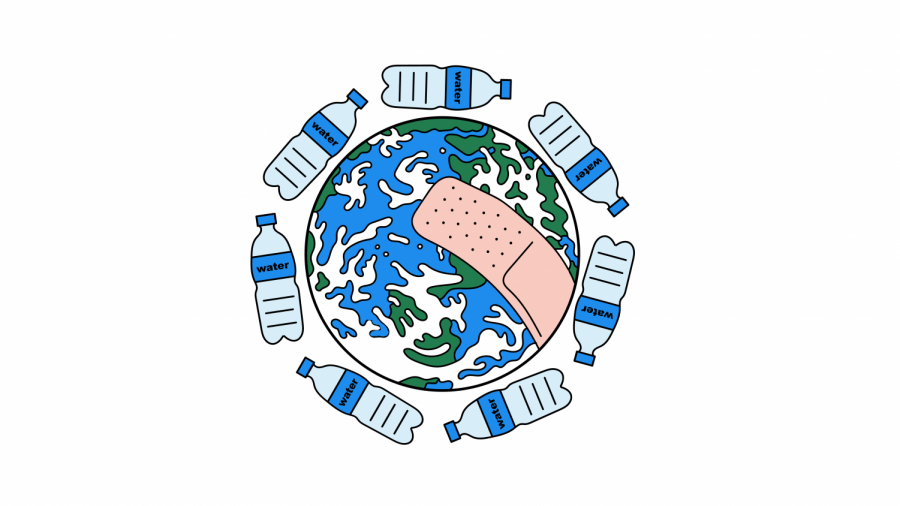Bowling Green recycling issues reflect global waste crisis
February 4, 2020
Issue: The recycling and waste industries have suffered major economic losses following a recent Chinese policy that has had local effects.
Stance: The recycling industry has had long term systemic issues, and it needs reform to create a sustainable future.
Subway, Chick-fil-A, Panda Express, Steak ‘n Shake and every other fast food chain restaurant on WKU’s campus hands out single-use plastic containers, most of which end up in the trash because people either don’t know or don’t care that the world is facing a waste management crisis.
The issue is no longer avoidable. Warren County’s contracted recycling company, Southern Recycling, will stop picking up curbside recycling by March 31. The company’s contract with Bowling Green will end July 31, so residents who want to recycle will have to drop their waste off at the facility on 63 N. Graham St.
Warren County is currently seeking another company to contract, according to WBKO.
This comes as a surprise because recycling, a roughly $200 billion worldwide industry, was booming just a few years ago, especially in the local area.
In October 2017, Southern Recycling invested $7.5 million in a new facility and another $6 million on new equipment for metal recycling, according to the Bowling Green Daily News.
But in December 2017, the world’s largest buyer of recyclables, China, announced it was cutting back on importing materials due to environmental concerns. The policy, known as “National Sword,” banned 24 types of solid waste and will only accept materials with less than 0.5% contamination rate, according to Public Radio International.
China is no longer willing to be the world’s garbage dump, and they have developed their own recycling infrastructure so they no longer rely on foreign imports of plastics and paper, which they were using to manufacture a variety of products.
Other countries, like Malaysia, Vietnam and Indonesia began importing at much higher rates, but they quickly pivoted and are now cutting back because they cannot handle the amount of trash flowing into their countries.
American recycling has always been more about exporting and turning a profit than it has been about sustainability, especially in the case of plastics, which are often more expensive to recycle than to just produce more plastic.
This is a problem because of the 8.3 billion tons of plastic produced since 1950, about 80% now sits in landfills or in the natural environment, according to a Science Advances research article.
If trends continue, plastic in the ocean is expected to triple in the coming decade. And by 2050, it is estimated that the weight of plastic debris in the ocean will be greater than that of all the fish, according to a World Economic Forum report.
This will have impacts on the fishing industry and possibly even human health as microplastics continue to accumulate in our bodies. Though the effects of plastic in our body have yet to be seen, it’s probably not good for us.
So as the recycling industry goes through turbulence, a good portion of the plastic people recycle just ends up in landfills, where it can potentially contaminate groundwater and produces methane — roughly 30 times more efficient at trapping greenhouse gases than carbon dioxide.
Fortunately, there is a trend towards sustainability in the business industry. Markets will eventually realize that it makes more economical sense to create products that can be reused in some fashion.
For example, making soda cans from recycled aluminum requires 95% less energy than mining and using raw ore. In 2019, Pepsi pledged to no longer use virgin plastic in its products, according to Bloomberg.
It would be wise for consumers to not forget the tremendous power of their purse. When people stop buying single-use plastics in volume, companies will be forced to design more eco-friendly products.
Next time you go to blame governments, companies and the recycling industry for our current waste dilemma, remember that you have a hand in it as well.
So, the problem is much larger than whether or not to recycle. It is about the cycle of business as usual. Humans have always harvested natural resources to make the products we use and then throw away. But as populations grow and waste piles up, it will be vital for our global environment and personal health to turn our waste into energy.
Opinion editor Jake Dressman can be reached at jacob.dressman200@topper.wku.edu or on Twitter at @jdressman25.















